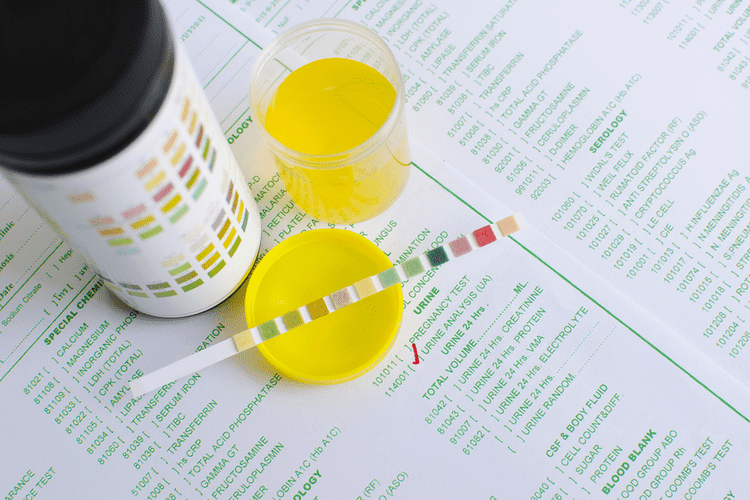The National Institute on Drug Abuse (NIDA) recommends that people spend a minimum of 90 days in treatment. Substance use disorders (SUDs) often occur alongside mental disorders, such as anxiety, depression, post-traumatic stress disorder (PTSD), and more. Our facilities treat the whole person, offering care for both SUDs and co-occurring disorders. Psychologists specialize in the assessment, diagnosis, and treatment of mental health conditions, SUD, and addiction. They’re trained in a variety of evidence-based treatment methods designed to improve emotional and interpersonal well-being. Our addiction medicine research is helping both members and nonmembers get better, more effective treatment.
Having an effective conversation involves learning how to communicate with someone who has an addiction. There are a number of different treatment options that can be effective, so it is important to consider the options. Think about which approach might be best suited to you and your loved one’s needs and goals. These strategies will help you cope with the stressors you will likely encounter when helping a friend or family member seek and receive help with an addiction. If you have a friend or relative who is living with addiction, you might be wondering how you can help. To be clear, it’s not always easy to make the decision to provide help with substance use or another type of addiction.
How to talk to someone about their drug abuse
For people living with addictions, some of their relationships may revolve around addictive behaviors. In such cases, setting boundaries within those relationships and joining a self-help group such as Alcoholics Anonymous (AA) can be helpful for providing a group of people who understand what they are going through. Behavioral addictions can occur with any activity that’s capable of stimulating your brain’s reward system. Behavioral scientists continue to study the similarities and differences between substance addictions, behavioral addictions and other compulsive behavior conditions like obsessive-compulsive disorder (OCD) and bulimia nervosa. To better help someone with a drug addiction, it’s often necessary to hold them accountable for their actions by establishing limits or boundaries for what is and isn’t acceptable behavior.
However, it can also take time and effort for trust to be re-established if you have hurt friends or family while you were actively involved in your addiction. Strengthening positive relationships with the supportive people in your life can play an important part in your recovery and continued abstinence. There are many different treatments that can help you during the process of overcoming an addiction, including medical and psychological approaches. There is no one “right” type of addiction treatment, although some approaches are better supported by research than others. If you have an underlying mental health problem, such as anxiety or depression, it could worsen during the withdrawal phase.
What is SAMHSA’s National Helpline?
Compared to a placebo (a pill with no therapeutic value), it significantly reduces symptoms of withdrawal and may cause less of a drop in blood pressure than similar agents. Counseling may also involve family members to develop a deeper understanding of substance use disorder and improve overall family functioning. This article discusses how drug addiction is treated and offers suggestions for overcoming drug addiction. Withdrawal from different categories of drugs — such as depressants, stimulants or opioids — produces different side effects and requires different approaches.
She says Oregon lawmakers are on the verge of making a critical error at a time those investments are beginning to pay off. Groups that advocate for Measure 110 have been harshly critical of the proposal to reintroduce possible criminal penalties for drug possession. They point out that the court system is already under severe strain due to a public defender shortage, and that the nation’s decadeslong drug war was both unsuccessful and particularly detrimental for communities of color.
What causes relapse?
However, if you are feeling depressed or find yourself constantly wanting to return to the addictive behavior, you should seek support and treatment. Fortunately, most of the what is drug addiction acute symptoms of withdrawal pass within a week or two of quitting. However, some people who quit an addiction find that certain withdrawal symptoms seem to go on and on.

Behavioral therapies can also enhance the effectiveness of medications and help people remain in treatment longer. Although there’s no cure for drug addiction, treatment options can help you overcome an addiction and stay drug-free. Your treatment depends on the drug used and any related medical or mental health disorders you may have. Addiction treatment services vary between drug rehab centers and their different approaches. Some services may be delivered in a group format with other people in recovery, but it may also include individual therapy, family therapy, or mutual support meetings, such as participation in Alcoholics Anonymous (AA). Research suggests that online therapy can also be an effective treatment option for substance use disorders.
Drugs, Brains, and Behavior: The Science of Addiction
An intervention includes trained professionals like a drug and alcohol counselor, therapist, and/or interventionist who can help guide a family through the preparation and execution. It occurs in a controlled setting (not in the person’s home or family home). Intervention works by confronting the specific issues and encouraging the person to seek treatment. Drug addiction is dangerous because it becomes all-consuming and disrupts the normal functioning of your brain and body. When a person is addicted, they prioritize using the drug or drugs over their wellbeing. This can have severe consequences, including increased tolerance to the substance, withdrawal effects (different for each drug), and social problems.
Ultimately, the decision to attend treatment and seek recovery relies on the individual, but there are steps you can take to help facilitate the decision. For people with addictions to drugs like stimulants or cannabis, no medications are currently available to assist in treatment, so treatment consists of behavioral therapies. Treatment should be tailored to address each patient’s drug use patterns and drug-related medical, mental, and social problems. After discussion with you, your health care provider may recommend medicine as part of your treatment for opioid addiction. Medicines don’t cure your opioid addiction, but they can help in your recovery. These medicines can reduce your craving for opioids and may help you avoid relapse.
Setting Healthy Boundaries in Relationships
Diagnosing drug addiction (substance use disorder) requires a thorough evaluation and often includes an assessment by a psychiatrist, a psychologist, or a licensed alcohol and drug counselor. Blood, urine or other lab tests are used to assess drug use, but they’re not a diagnostic test for addiction. However, these tests may be used for monitoring treatment and recovery. The Food and Drug Administration (FDA) has approved a number of medications that can be effective in the treatment of alcohol dependence and other substance use disorders. These include including Vivitrol (naltrexone), Campral (acamprosate), and Suboxone (buprenorphine and naloxone).

